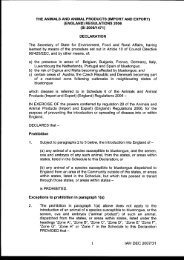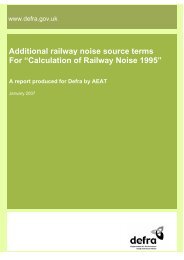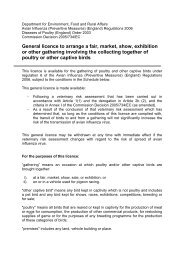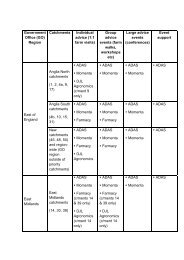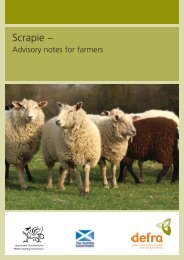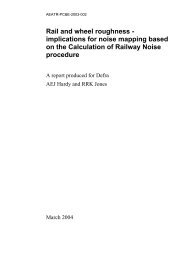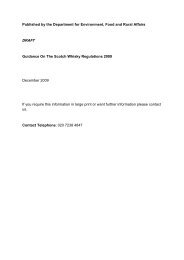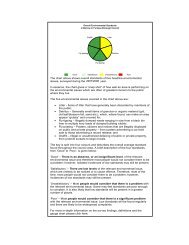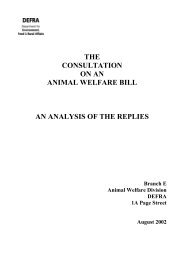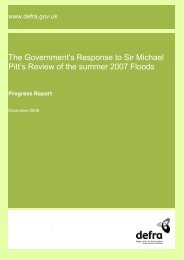Review of the Food-borne Zoonoses Research ... - ARCHIVE: Defra
Review of the Food-borne Zoonoses Research ... - ARCHIVE: Defra
Review of the Food-borne Zoonoses Research ... - ARCHIVE: Defra
You also want an ePaper? Increase the reach of your titles
YUMPU automatically turns print PDFs into web optimized ePapers that Google loves.
1. Salmonella <strong>Review</strong> Summary<br />
1.1 Success <strong>of</strong> research in providing value to <strong>Defra</strong><br />
Salmonellosis is one <strong>of</strong> <strong>the</strong> most important bacterial diseases <strong>of</strong> man and animals<br />
worldwide and has important implications for human and animal health and welfare. At<br />
present Salmonella Enteritidis and S. Typhimurium account for <strong>the</strong> majority <strong>of</strong> cases <strong>of</strong><br />
human salmonellosis.<br />
<strong>Defra</strong> is responsible for <strong>the</strong> protection <strong>of</strong> animal health and has a major role in protecting<br />
human health from animal diseases. The panel felt that it was <strong>the</strong>refore appropriate for<br />
<strong>Defra</strong> to fund work in this area and agreed that <strong>Defra</strong>‘s portfolio <strong>of</strong> Salmonella research<br />
has contributed significantly to <strong>the</strong> Salmonella evidence base, to developing scientific<br />
methodology and maintaining essential expertise.<br />
Development <strong>of</strong> Molecular Methods<br />
DNA techniques have been employed to develop molecular subtyping methods for<br />
Salmonella. This has helped to improve strain identification and comparison <strong>of</strong><br />
Salmonella species.<br />
<strong>Research</strong> is currently in place to develop rapid screening tools to improve <strong>the</strong> detection<br />
and control <strong>of</strong> Salmonella, by providing an early warning system for <strong>the</strong> emergence <strong>of</strong> <strong>the</strong><br />
next epidemic Salmonella strain or clone.<br />
Poultry <strong>Research</strong> – Broilers<br />
Valuable research has been undertaken investigating bacterial and host genes involved<br />
in Salmonella colonisation in poultry. This has contributed to our understanding <strong>of</strong> <strong>the</strong><br />
genetic basis <strong>of</strong> host resistance to colonisation which could be exploited using genetic<br />
selection.<br />
Commissioned research aimed at assisting <strong>the</strong> turkey industry with reducing Salmonella<br />
and antimicrobial resistance is at an early stage. It was thought that this had <strong>the</strong> potential<br />
be extremely important to <strong>Defra</strong> in providing evidence on <strong>the</strong> occurrence and<br />
17



